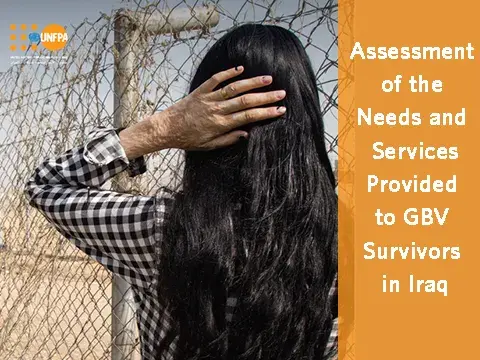With the end of the large-scale military offensives in late 2017 and the liberation of all areas from the Islamic State in Iraq and the Levant (ISIL), the humanitarian crisis in Iraq entered a new phase of recovery and reconstruction. Therefore, attention turned to longer-term priorities.
Despite the new transition, the devastating impact of the three-year battle on women and girls in Iraq remains profound as Gender-Based Violence (GBV), including sexual violence and forced marriages, was used as a weapon of war. However, GBV is not only the result of the conflict in Iraq but exists within the different communities in the country; approximately 63 per cent of incidents are perpetrated by partners, brothers, fathers and mothers.
For that reason, UNFPA, in partnership with the GBV sub-cluster and working groups members, conducted a Survivors’ Assessment in order to identify the evolving needs of the survivors of Gender-Based Violence (GBV) across Iraq. As an outcome of this assessment, a list of recommended actions has been developed; including policy action and capacity building of government and local partners, to ensure that GBV survivors receive the care and support that they need and to strengthen the GBV multi-sectoral prevention and response in Iraq.
It is important that the government decisions and systems related to the protection of and services offered to the survivors of GBV are adequately tailored based on the identified needs of these survivors. A logical output of the needs assessment will be a Survivor Support Strategy owned by the government authorities and a capacity development plan for government institutions to provide the services required by GBV survivors throughout the country.
UNFPA and GBV actors across Iraq will continue to work closely with government agencies, civil society organisations and other service providers to ensure that the safety, protection, and dignity of the GBV survivors, remain a priority in the upcoming years.
****


